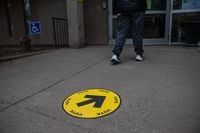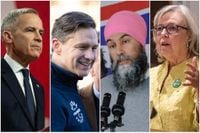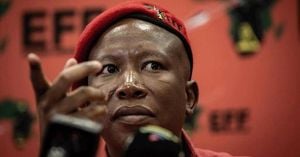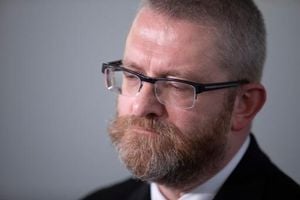Canada is poised for a significant political shift as the nation heads to the polls on April 28, 2025, for its 45th federal election. Called on March 23 amid a tense trade war with the United States, this snap election has seen intense campaigning over the past 36 days. With 343 seats in the House of Commons up for grabs, the stakes are high for the leading political parties.
The primary contenders in the election include Mark Carney's Liberals, Pierre Poilievre's Conservatives, Jagmeet Singh's New Democrats, Elizabeth May and Jonathan Pedneault's Greens, Yves-François Blanchet's Bloc Québécois, and Maxime Bernier's People's Party of Canada. Polls opened in British Columbia at 7 a.m. PDT, and will close at 7 p.m. PDT, giving voters ample time to make their voices heard.
In Saanich-Gulf Islands, a notable race is underway, featuring candidates such as David Beckham from the Liberal Party, Elizabeth May representing the Green Party, Cathie Ounsted from the Conservatives, and Colin Plant of the New Democrats. Voters in this riding, like others across the country, are reminded to check their local polling locations, which can be found on the Elections Canada website or via their voter registration cards.
As the day progresses, results are expected to start pouring in after polls close, with ballots being counted across the country. In the lead-up to the election, various leaders have made their final campaign pushes. Liberal Leader Mark Carney, a first-time candidate, is set to vote in his home riding of Nepean, Ontario, before hosting an election night party in Ottawa. He has expressed cautious optimism about the election outcome, with some insiders suggesting a potential majority government is within reach.
In contrast, Conservative Leader Pierre Poilievre has kept a low profile, with no public events scheduled for election day. He and his wife, Ana, have already cast their ballots in Carleton, Ontario, and will monitor the results from an election night gathering in downtown Ottawa.
New Democratic Party Leader Jagmeet Singh is actively engaging with voters in British Columbia, starting his day with a campaign event in Port Moody before attending a Day of Mourning ceremony in Burnaby. Singh will also host an election night event in his home riding of Burnaby Central, which is reportedly becoming a competitive race.
Bloc Québécois Leader Yves-François Blanchet is focusing his efforts in Quebec, where he is expected to meet with local candidates before voting in Chambly. Later, he will join supporters at an election night event in Montreal.
Meanwhile, Green Party co-leaders Elizabeth May and Jonathan Pedneault are campaigning in different regions. May is in British Columbia, where she will cast her ballot and spend time with supporters, culminating in an election night watch party in Victoria. Pedneault will host his own gathering in Montreal.
As the election unfolds, the political landscape remains dynamic. Recent polling data suggests that the Liberals are leading the Conservatives by narrow margins, with Leger reporting a four-point lead nationally (43% to 39%). However, regional discrepancies indicate a complex scenario, particularly in Ontario where the Liberals lead by only three points, while they enjoy a more substantial 10-point lead over the Bloc in Quebec.
In British Columbia, the situation is more challenging for the Liberals, as they trail the Conservatives by two points, a shift from their previous standing. Liberal insiders are expressing confidence about retaining key battleground seats, including Ottawa Centre, where Yasir Naqvi is facing a strong challenge from NDP candidate Joel Harden.
As the day progresses, the atmosphere is charged with anticipation. U.S. President Donald Trump has stirred controversy by suggesting on Truth Social that Canada should become the "cherished 51st state," prompting a swift response from Poilievre, who asserted, "Canada will never be the 51st state. The only people who will decide the future of Canada are Canadians at the ballot box." This exchange highlights the heightened political climate as Canadians prepare to exercise their democratic rights.
With the polls set to close soon, all eyes are on the results that will shape Canada’s future. The election marks a pivotal moment in the nation’s political journey, and the outcomes will resonate across the country for years to come. As Canadians cast their votes, the hope is that their collective voice will guide the direction of the federal government in these challenging times.
The election night events will begin shortly after polls close, with leaders gathering to await the results that will determine the new government. As the clock ticks down, the excitement builds, and Canadians remain engaged, ready to see how their votes will impact the political landscape.





